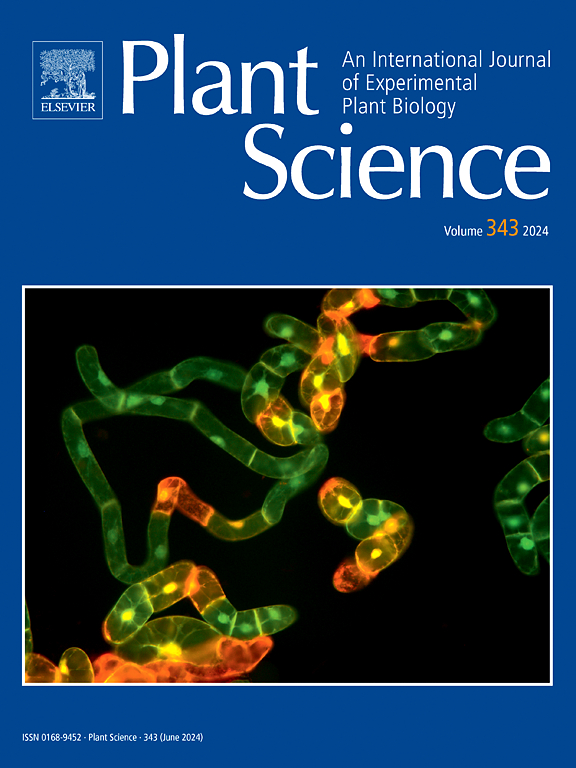Optimization of tissue culture and Cas9 transgene expression in tomato: A step towards CRISPR/Cas9-based genetic improvement
IF 4.2
2区 生物学
Q2 BIOCHEMISTRY & MOLECULAR BIOLOGY
引用次数: 0
Abstract
Tomato (Solanum lycopersicum L.) is an essential source of antioxidants and a prime candidate for bioengineering experiments. Many studies have aimed to improve tomatoes using CRISPR/Cas9 technology; however, the success rate is limited due to the lack of efficient regeneration and genetic modification techniques. Here, we report an efficient regeneration and transformation procedure focused on developing efficient Cas9 gene transgenic tomato plants using the Agrobacterium tumefaciens strain LBA4404 harbouring pCRISPR/Cas9TK2-NIC binary vector. We optimized the concentrations and combinations of growth hormones to promote direct shoot and root regeneration via hypocotyl explants. We found that MS medium 2.0 mg/l Zeatin (Zn) + 1.5 mg/l Indole −3- acetic acid (IAA) + 0.3 mg/l Benzyl amino purine (BAP) was preeminent for shoot regeneration medium, and 0.5 mg/l BAP+ 0.1 mg/l IAA was appropriate for root regeneration. Cas9 transgenes in the tomato genome of putative tomato plants were validated using various methods, including polymerase chain reaction (PCR), and confirmed via Southern blotting. The developed protocol showed improved regeneration and transformation efficiencies in tomatoes of 88 % and 54 %, respectively. In this study, we successfully established a gene delivery platform for tomatoes using the CRISPR/Cas9 system.
番茄组织培养及Cas9基因表达优化:迈向CRISPR/Cas9基因改良的一步
番茄(Solanum lycopersicum L.)是抗氧化剂的重要来源,也是生物工程实验的主要候选者。许多研究旨在利用CRISPR/Cas9技术改善西红柿;然而,由于缺乏有效的再生和基因改造技术,成功率有限。在这里,我们报道了一种高效的再生和转化过程,重点是利用农杆菌菌株LBA4404培育出高效的Cas9基因转基因番茄植株,该菌株携带pCRISPR/Cas9TK2-NIC二元载体。通过优化生长激素的浓度和组合,促进下胚轴外植体的茎和根再生。结果表明,MS培养基2.0mg/l玉米素(Zn) + 1.5mg/l吲哚-3-乙酸(IAA) + 0.3mg/l苄基氨基嘌呤(BAP)是植株再生的最佳培养基,0.5mg/l BAP+ 0.1mg/l IAA是根系再生的最佳培养基。利用包括聚合酶链反应(PCR)在内的多种方法验证了番茄基因组中的Cas9转基因,并通过Southern blotting证实了Cas9转基因。开发的方案表明,番茄的再生和转化效率分别提高了88%和54%。在本研究中,我们利用CRISPR/Cas9系统成功建立了番茄基因传递平台。
本文章由计算机程序翻译,如有差异,请以英文原文为准。
求助全文
约1分钟内获得全文
求助全文
来源期刊

Plant Science
生物-生化与分子生物学
CiteScore
9.10
自引率
1.90%
发文量
322
审稿时长
33 days
期刊介绍:
Plant Science will publish in the minimum of time, research manuscripts as well as commissioned reviews and commentaries recommended by its referees in all areas of experimental plant biology with emphasis in the broad areas of genomics, proteomics, biochemistry (including enzymology), physiology, cell biology, development, genetics, functional plant breeding, systems biology and the interaction of plants with the environment.
Manuscripts for full consideration should be written concisely and essentially as a final report. The main criterion for publication is that the manuscript must contain original and significant insights that lead to a better understanding of fundamental plant biology. Papers centering on plant cell culture should be of interest to a wide audience and methods employed result in a substantial improvement over existing established techniques and approaches. Methods papers are welcome only when the technique(s) described is novel or provides a major advancement of established protocols.
 求助内容:
求助内容: 应助结果提醒方式:
应助结果提醒方式:


